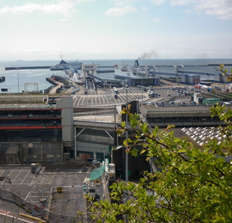The Home Office has failed over the past three years to move from a crisis response to having better systems and procedures in place and treating small boats crossing the Channel with migrants as ‘business as usual’, the Independent Chief Inspector of Borders and Immigration (ICIBI), David Neal, has complained in a report.
In 2021, some 28,526 people arrived on the south coast in small boats, according to the Home Office’s count, compared with 236 in 2018. The ICIBI has published a report on an inspection of the initial processing of migrants arriving via small boats at Tug Haven and Western Jet Foil, in Dover. David Neal said of the Channel-crossing migrants: “Many were vulnerable and at risk, including children and women on their own, and when they arrived in Dover the way they were dealt with was unacceptable. This is because the Home Office has failed over the past three years to move from a crisis response to having better systems and procedures in place and treating this as business as usual.
“Data, the lifeblood of decision-making, is inexcusably awful. Equipment to carry out security checks is often first-generation and unreliable. Biometrics, such as taking fingerprints and photographs, are not always recorded.
“The Home Office told our inspectors that 227 migrants had absconded from secure hotels between September 2021 and January 2022, and not all had been biometrically enrolled. Over a five-week period alone, 57 migrants had absconded – two-thirds of whom had not had their fingerprints and photographs taken. Put simply, if we don’t have a record of people coming into the country, then we do not know who is threatened or who is threatening.”
The ICIBI pointed out that another inspection last year by Her Majesty’s Chief Inspector of Prisons found that migrants were being held in unsatisfactory conditions, with weak Home Office systems relating to governance, accountability and safeguarding.
David Neal added that high volumes of migrants led to poor record keeping and data collection and processes that do not work. “The workforce can do no more. They have responded with enormous fortitude and exceptional personal commitment, which is humbling, and they are quite rightly proud of how they have stepped up. However, we found there was a lack of effective and visible leadership.
“This is not about rank and file staff working hard on the quayside at Dover, this is about effective leadership, grip and the ability to bring in systems that work. Border Force and Immigration Enforcement officers at home and overseas are doing a great job on a daily basis. A new model for Borders and Enforcement is desperately required if our border is to be secured and vulnerability effectively addressed. There needs to be a strategic approach by the Home Office to regularise their response to small boats, as this has become business as usual and moved beyond an emergency response.”
The ICIBI says that he will reinspect the processing facilities later this year. For the report in full visit: https://www.gov.uk/government/publications/an-inspection-of-the-initial-processing-of-migrants-arriving-via-small-boats-at-tug-haven-and-western-jet-foil-december-2021-january-2022.
In its response, the Home Office said that it had transformed arrangements for the reception and initial processing of people arriving by small boat across the Channel. The Tug Haven site, the focus of much of the criticism of this report, has been closed since mid-January 2022. The Home Office acknowledged the observations of fact in the report and accepted all the recommendations. It said that the second half of the year and November in particular saw exceptional arrival numbers frequently in highly dangerous seas. The arrival numbers outstripped even the most pessimistic forecasts by some margin.










